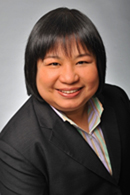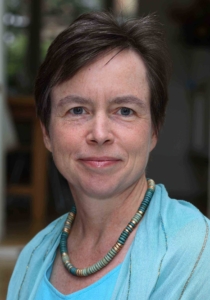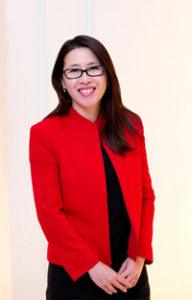 By Hadley Catalano
By Hadley Catalano
Dayle Haddon is working to change the world, one woman at a time. The former model, of the 1970s and ‘80s L’Oréal and Estée Lauder fame, began with her own sovereign growth. An act that has helped reshape the cosmetic industry standards, challenged society-based definitions of ageless beauty, and culminated in a redefined commitment to active gratitude.
Haddon’s intrepid story of personal development began in Canada, where the Québécoise began her career with the ballet. She began modeling during her teenage years to help pay for her dance lessons and was soon discovered by Eileen Ford. The young Haddon pursued her modeling career in New York – even though her 5’7’’ frame and curly brunette look were starkly dissimilar from the early 1970s tall-blond beauty standards.
“I was always looking for ways to support myself, and it took me a long time to be successful,” explained Haddon, who was recently honored by the Girl Scouts of Greater New York as an extraordinary leader and role model. “However, at the height of my career, I was working with top magazines, top photographers, and had four major cosmetic contracts.”
While Haddon’s career wove through a variety of high-profile professions, including small acting roles for French and American films, she eventually settled in Paris with her husband and their young daughter. Then, unexpectedly in 1986 Haddon’s husband died, leaving her with little money or support. She returned to Los Angeles desperate to find work to support her teenage daughter.
“This was a life-changing event; losing someone close to me was a painful experience,” Haddon recalled. “But it was transformative. Challenges make you more than you are. You can’t control what happens to you, but you can control how you handle it.”
Redefining Beauty
Starting over, Haddon found herself at the bottom of the ladder. At the age of 38, she was considered “over the hill,” and not desirable to modeling agencies or her former cosmetic employers. After having worked as a top model, only to be rejected by her profession, forced Haddon into a desk job as an office receptionist – an unexpected but didactic situation.
“It was good for me to recognize at the time that this was a humbling experience. I knew I wouldn’t stay there. If you give me an opportunity, I will work it. Challenges are there to build character and to grow.”
Haddon’s passion for women’s advocacy began as she struggled to climb the “glass walls” back into the beauty and fashion industry. She longed to break down the stereotypical age-image barriers and change the perception of “older woman” from inside the industry. She formulated a campaign and pitched major cosmetic labels the image of evolving, age-defying beauty. After many rejections Haddon landed a job as the face of Estée Lauder’s new anti-aging line and later became the spokeswoman for L’Oréal’s Age-Perfect skin care. The career move, the New York Times later quoted, “shattered age taboos,” and helped to launch the careers of models over 40.
“We were on the forefront of something different, and (at the time) most beauty companies hadn’t caught up yet,” Haddon explained of the early 1990’s beauty-from-within movement. “I researched in libraries and found information that explained that the 43 million female Baby Boomers felt they were more vital than generations before. So I started my own company, Dayle Haddon Concepts.”
For the next 20 years Haddon continued her work in the beauty industry, bringing progressive change to the industry and promoting awareness of the inner and outer beauty of all women. Through her personal company, her contributions to CBS’s The Early Show, the Huffington Post and many other publications, and with her two books, “Ageless Beauty” and “The 5 Principles of Ageless Living,” she has provided women an outlet to explore a balance between their health, beauty, and overall well-being.
A Model Activist
However, central to Haddon’s upbringing was the reinforced message to “give back,” and with her high visibility providing a public forum to elicit change, Haddon seized the opportunity to express her gratitude by pursuing a social justice agenda. She became a UNICEF Ambassador in 2008 and traveled to Darfur to interview women in the camps, visited earthquake-ravaged Haiti to vaccinate newborns, and brought home stories from Angola about the lack of medical equipment in rural clinics. She shared this information in lectures, wrote articles for publications, and helped to raise money for children’s issues worldwide.
Read more
 The Glass Hammer is celebrating Hispanic Heritage Month by featuring profiles of Hispanic Women Business Leaders all week long!
The Glass Hammer is celebrating Hispanic Heritage Month by featuring profiles of Hispanic Women Business Leaders all week long!





